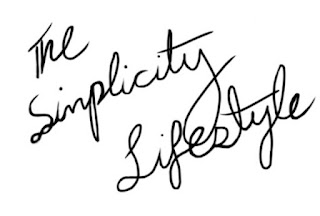Simply Keeping Up With Technology
“Digital Minimalism A philosophy of technology use in which you focus your online time on a small number of carefully selected and optimized activities that strongly support things you value, and then happily miss out on everything else.”
I was born in the early eighties in a small midwestern ski town in the Rocky Mountains. My home town wasn’t even on the Colorado map back then. Now Telluride is almost as well known as Aspen or Vail, but in the eighties it was still an undiscovered gem.
Growing up my friends and I spent most of our days exploring, playing, and trying to get away with mischief outside from sun up to sun down. Our parents would keep tabs on us throughout the day through a complex network of land lines, in my opinion this was the first internet before the internet even existed. My mom and I had an old TV and VCR Machine but we couldn’t afford cable so we would occasionally rent a movie on the weekends. We owned an old typewriter, which I would occasionally use to write school papers on. If I made a mistake I would either have to start all over or use whiteout. Sometimes my papers would be covered in the white goopy stuff, spelling errors, and grammatical mistakes and my grade would reflect my sloppy work. If I didn’t know how to spell a word I would have to use our giant red Webster’s Dictionary, laboriously thumbing through thousands of pages to find the single word in question. In order to not have to continually search for the same words over and over I was forced to memorize spellings and definitions of the more commonly used words. If I had a research paper due or wanted to learn about a new subject on my own I would have to walk to the other end of town to the library, thumb through the Card Catalog, and find the books I needed. Sometimes it would take all day to get the information I desired. When I went snowboarding all day on the slopes I was expected to have my giant, five pound, Walky-talky on me just in case of an emergency.
The point I’m trying to make isn’t the fact that “in my day we had to walk uphill to school both ways,” but that information wasn’t as readily available. To get a relatively small amount of information we had to work for it and it would take so much longer than asking Alexa or Googling a question and immediately receiving the answer. If anyone would have told me that I would have instantaneous access to terabytes of information at my fingertips at all times I would have asked, “what the heck is a terabyte?”
All kidding aside though, our brains are not equipped to process the amount of continuous information we are trying to process on a daily basis. No wonder we are All so mentally exhausted, but it doesn’t need to be this way. Not that long ago our society functioned just fine without our eyeballs being glued to screens all day long. For hundreds of thousands of years our species has invented tools to help in our daily lives, making survival easier.
Each time a tool is created we loose certain mental and physical skills, like using a dictionary or memorizing the spelling and definitions of so many words, but we learn new skills as the old ones become superfluous.
The question is, how far are we willing to take our technologies? Do we really need to be connected at all times?
Personally, I like the convenience our connectivity has provided. I also like having the answers so readily available. I don’t feel, however, that we need to be connected at all times. I don’t want to be a Cyborg and I don’t feel that it is absolutely necessary either.
There is a reason that a lot of Tech People don’t allow their kids to have cell phones until they’re older and limit their screen times. It can be highly addictive and taxing on our brains. We also miss out on a lot of living while scrolling through so much junk, trying to find that golden nugget of value.
Minimalism has helped me to become much more deliberate and intentional while using our new technological tools.
I use my phone primarily to keep in touch with people. I use my tablet primarily to write my blogs and books and read the latest books and news, and sometimes I scroll through social media. I’ve learned that dealing with social media algorithms is a lot like looking into a mirror because it chooses content based on what I’m paying attention to. I also always keep in mind the many tactics companies use to sell products that a minimalist like myself probably doesn’t really need.
I do my writing and reading for two hours after my morning walk and I allow myself thirty minutes of scrolling time on social media. At night I allow myself two hours of TV time. I’ve been working on having no screen time for an hour before bedtime so I can get better sleep. I also leave my phone and tablet out of my bedroom at night because the temptation is just too much.
I’m not saying that everyone should adopt my screen time routines, what I’m trying to convey is that we are in charge, we are in control of how we decide to use these technological tools. If something seems off or stressful we can change our habits to better suit our needs!
We can disconnect and just be human if we want to!
We don’t always need to be “on” or “productive,” we can just exist and be in the moment and that is enough!
Simplicity is the Key to allowing us to freely be ourselves!
We have the right to freedom of thought!
Here’s an existential question for you. What will we do with ourselves and what will it mean to be “human” if our automated technologies take care of all our physical and mental needs?
Consciousness, that qualitative feeling of “I,” may be all we have to offer the universe. Personally I feel that being in the eternal now observing the infinite universe is enough. A universe without a consciousness experiencing It seems pretty pointless to me.
Now for a very serious existential question. What will happen if our technological tools surpass our intellectual capabilities, becoming self aware, and deciding they don’t want to be tools anymore? What if we suddenly find ourselves in it’s way to what ever goal it decides to pursue?
These may sound like very strange questions but General Artificial Intelligence is on the horizon. As far as we know consciousness is not dependent on the materials that are used to bring it about.
Humans are very complicated organic machines that are subject to the physical laws of the known universe like everything else. Our minds are our software, they can change their code through learning new skills and behaviors by studying and training, the code of our hardware is our DNA, which is slightly and slowly modified from generation to generation.
It seems entirely possible that we could one day, maybe sooner than later, develop a complicated enough Artificial Intelligence that could think, learn, and act independently without any outside influence. This General Artificial Intelligence could consciously update it’s software and it’s hardware at an astronomical rate. It would not be subject to the slow process of evolution to update its hardware like humans are. Humans and other biological species could possibly become obsolete very quickly.
Now, the big question is, do we build this machine?
Personally I feel that “survival” is the name of the game, but I also feel that what it means to be “human” is changing very quickly and we should be asking ourselves what do I want “being a human being” to look like?
At the end of the day we are the only ones that can answer this question!




Comments
Post a Comment